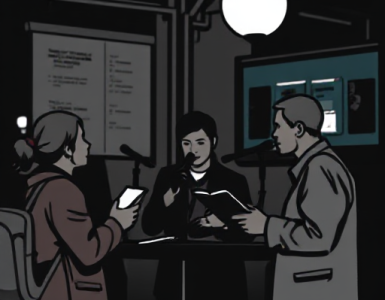Some experts believe dreaming is like your brain’s personal highlight reel, processing the events of the day. Ever found yourself mulling over a tough conversation or a significant life change? Your dreams might just be your subconscious helping you work through those feelings, like a therapist whispering the answers into your ear while you snooze.
But hold on; there’s more! Have you ever experienced a dream so vivid that you woke up questioning reality? That’s your mind stretching its creative muscles. Dreams can serve as a canvas where your brain paints without boundaries, mixing memories, wishes, and unresolved issues. It’s as if you’re a movie director, crafting surreal stories that somehow mirror your waking life.
What’s especially wild is that some researchers think dreaming may help solve problems. Picture this: you’re tossing and turning at night, your biggest dilemma circling your thoughts, and suddenly, a solution pops up in your dream! It’s like your brain is saying, “Hey, let me take a crack at this!”
So, whether dreams are mere illusions or gateways to self-discovery, one thing’s for sure: they’re captivating. Each night, we embark on an adventure, exploring the landscapes of our minds. Isn’t that a wild ride?
Theories Behind Dreaming and Its Purpose
One of the most popular ideas is the psychoanalytic theory, famously suggested by Sigmund Freud. He proposed that dreams are windows into our unconscious mind, exposing desires and fears we may not consciously acknowledge. Imagine unlocking a hidden diary of your psyche every night, where every bizarre plot twist reveals a deeper truth about yourself.
Then there’s the cognitive theory, which suggests dreams play a vital role in memory consolidation. Think of your brain as a messy desk; dreams help organize and file away the clutter from your daily experiences. While you dream, your mind is busy weaving together the day’s events, helping you make sense of everything. Isn’t it fascinating how your brain works overtime even when you’re off in dreamland?
Another compelling theory is that of dreams as a simulation for real-life challenges. This perspective argues that dreaming allows us to practice problem-solving in a low-risk environment. It’s like a mental rehearsal where we can face life’s dilemmas without the stakes being sky-high.
And let’s not forget the biological perspective. Some researchers argue that dreams are simply a byproduct of random neural activity, with our minds stitching together stories to make sense of the chaos. It’s as if our brain is hosting a nightly comedy show, filling the screen with unexpected twists and turns.
The exploration into the theories behind dreaming certainly opens up a wonderland of possibilities. Every night, while we drift off into slumber, our minds embark on a journey that sparks creativity, self-discovery, and maybe even a bit of insight into what makes us tick!
How Dreams Reflect Our Subconscious Mind
When you drift off to sleep, your conscious mind takes a backseat, allowing your subconscious to take the wheel. It’s during these moments that the layers of your psyche peel away, exposing fears, desires, and unresolved conflicts you might not even be aware of. Picture your subconscious as a messy attic, filled with forgotten memories and long-buried emotions. Dreams rummage through that attic, pulling out those dusty boxes and flinging their contents into the light.
Ever had a dream about flying? That euphoric sensation likely symbolizes a yearning for freedom or escape from your daily grind. On the flip side, nightmares can unveil deep-seated anxieties or stresses that you might be facing. It’s like your mind waving a red flag, saying, “Hey, there’s something here you need to deal with!”

The beauty of this is that everyone’s dreams are unique, shaped by personal experiences, emotions, and subconscious thoughts. If you’ve been feeling stressed at work, those dreams of being chased might be your mind’s way of processing that tension. Dreams serve as a window into our inner world, offering valuable insights that can guide us through life. So, the next time you wake up from an enigmatic dream, consider it a treasure map to your subconscious—it might just lead you to discover something extraordinary about yourself.
























Add comment